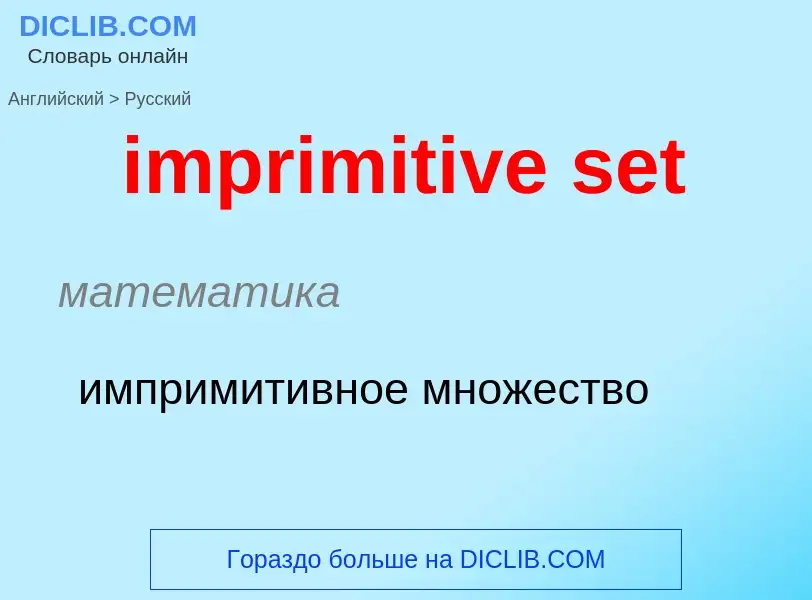Übersetzung und Analyse von Wörtern durch künstliche Intelligenz ChatGPT
Auf dieser Seite erhalten Sie eine detaillierte Analyse eines Wortes oder einer Phrase mithilfe der besten heute verfügbaren Technologie der künstlichen Intelligenz:
- wie das Wort verwendet wird
- Häufigkeit der Nutzung
- es wird häufiger in mündlicher oder schriftlicher Rede verwendet
- Wortübersetzungsoptionen
- Anwendungsbeispiele (mehrere Phrasen mit Übersetzung)
- Etymologie
imprimitive set - Übersetzung nach russisch
математика
импримитивное множество
математика
конечное подмножество
Wikipedia
In mathematics, a permutation group G acting on a non-empty finite set X is called primitive if G acts transitively on X and the only partitions the G-action preserves are the trivial partitions into either a single set or into |X| singleton sets. Otherwise, if G is transitive and G does preserve a nontrivial partition, G is called imprimitive.
While primitive permutation groups are transitive, not all transitive permutation groups are primitive. The simplest example is the Klein four-group acting on the vertices of a square, which preserves the partition into diagonals. On the other hand, if a permutation group preserves only trivial partitions, it is transitive, except in the case of the trivial group acting on a 2-element set. This is because for a non-transitive action, either the orbits of G form a nontrivial partition preserved by G, or the group action is trivial, in which case all nontrivial partitions of X (which exists for |X| ≥ 3) are preserved by G.
This terminology was introduced by Évariste Galois in his last letter, in which he used the French term équation primitive for an equation whose Galois group is primitive.


